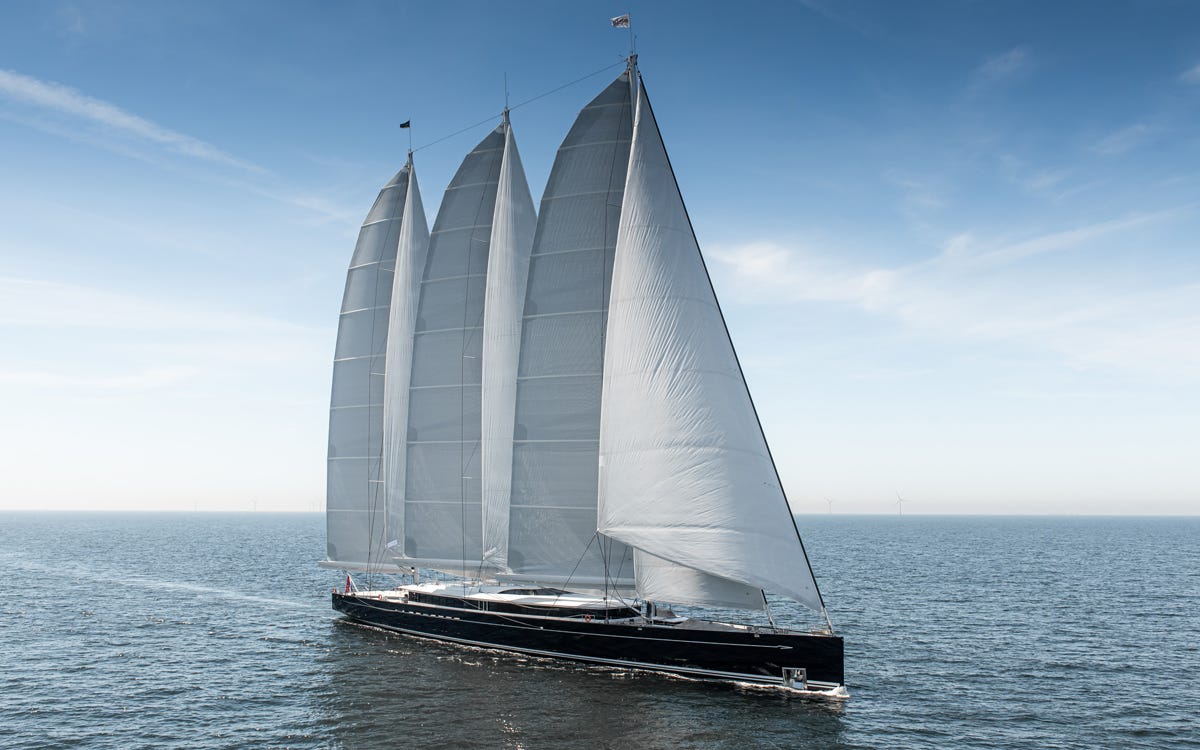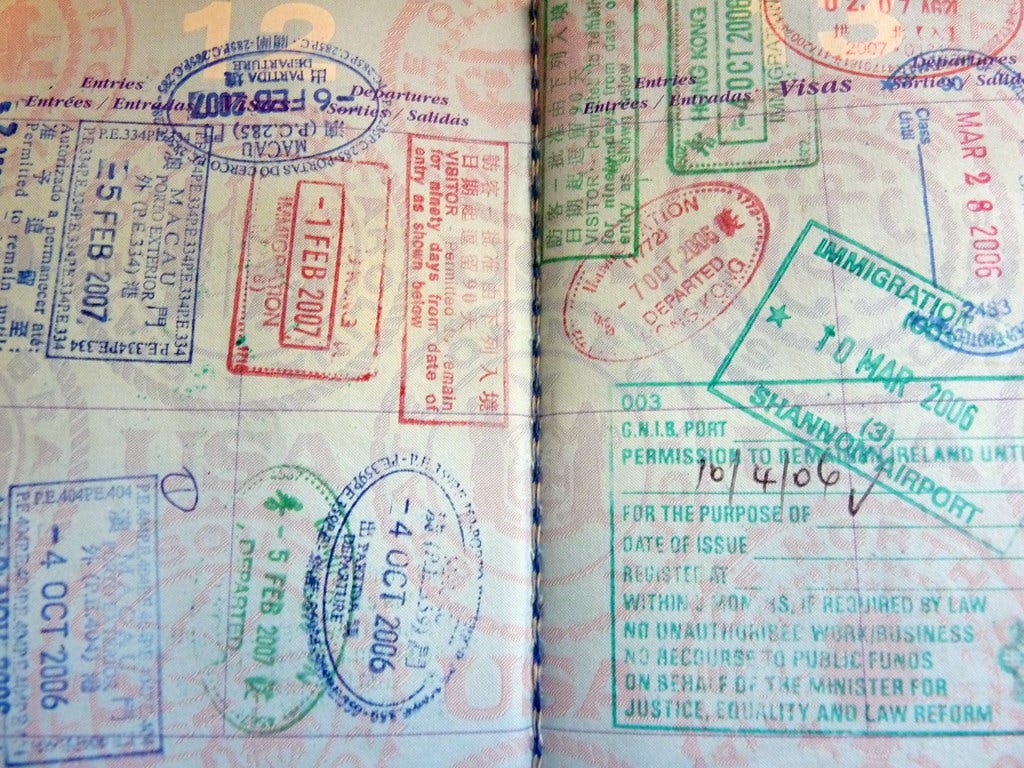Should You Travel the World or Stay at Home?
Here’s a scenario to consider:
Today an acquaintance called you up with an amazing opportunity to join them on their sailboat and travel the globe for 3 years, seeing most of the countries in the world. There is no cost to you (and if you have a spouse/kids you can bring them), but due to the travel schedule you can’t have a job or spend time with your friends during the 3 year trip.
Would you go? (Yes or No)
On the surface, this seems like perhaps one of the easiest no-brainer questions you’ll ever be asked. But it’s actually far more complicated than it would appear, especially when you start to consider the nuances of the situation. We first started asking questions like this, because lately we’ve been thinking a lot about the ultimate meanings of our careers (e.g “to what end are we working”) and how to ultimately balance the various experiences and desires of our lives.
We’ve discussed this scenario in depth with dozens of people (and surveyed several hundred) more, and the results were, well, very divided…
Even Austin (my co-author) and myself are split on our answers here, but today I’m going to make a strong case AGAINST taking the trip.

First the Good (The Traveling! The Experiences! The Food!)
“What an opportunity!” you must be thinking. Traveling the world is a fantasy most people have, and this just fell into your lap. You can explore the British Isles, discover little known civilizations in Africa, and ride an elephant in India. If you have children this will give them a real understanding of the world and the diverse cultures throughout it. There are many in the world who would pay a small fortune to provide their families with that kind of a “cultural immersion” experience.
Also all the food! What a variety!
Imagine your passport! Full of stamps.
And those experiences! Literally a world full.
This is so appealing that most people would stop here and make their choice. Stick with me for some real tradeoffs that people don’t consider

Now the Bad: Relationship Starving
On this trip you would enrich your relationship with your immediate family as well as your wealthy friend. Some would argue that’s enough for them for three years. However, research shows that prolonged absence from extended family and friends can weaken bonds. Regular interactions are essential for maintaining deep, supportive relationships.
At any point in your life, just calling, texting, or FaceTiming is not enough. While you could do this from your sailboat, it may work for a year, maybe slightly more, but humans have lived together in communities for a reason. And being absent for a 3-year period would almost certainly guarantee that those relationships will change.
Harvard’s famous 80-year-long Study of Adult Development found that maintaining close relationships is the number one factor in predicting long term happiness and health. By isolating yourself from existing networks, you risk sacrificing emotional fulfillment and support structures for the novelty of transient relationships.
At no point in your life are relationships more or less important. They’re equally important whether you’re 25 or 65 years old.
If you’re an extrovert (like I am), this becomes an even steeper cost to pay. I love my family and closest friends dearly, but I also derive a huge amount of happiness from spending time (even in small amounts) with my extended network of friends. Being isolated from this would cut to my heart. Extroverts derive a great deal of energy from the quantity and regular interaction through relationships, and though I suspect this cost wouldn’t impact introverts to quite the same extent, even they are not exempt from it.
More Bad: The Traveling
3 years on a sailboat may sound glamorous, until you start thinking about the trip itself. A large sailboat is only 40-60 feet long. An ultra-large sailboat can get up to 100 feet and usually have professional crews. There are usually multiple cabins, a galley (kitchen), bathrooms (heads), and communal living areas. Space can feel cramped.
Let’s suppose you are setting sail from New York to London via the most direct route possible. That’s 3,500 nautical miles. Due to weather and currents, most sailboats take a more southerly route to avoid harsh North Atlantic conditions, which adds distance.
If you had a highly skilled crew AND favorable winds, this trip alone would take 20-30 days. Those are sea days. So unless you’re looking for adventure out on the open sea, your sailing experience around the world will be lots of time in a cramped sailboat on the open water.

Most people picture idyllic days on a sailboat, but the reality is most days would involve monotony, seasickness, and possibly homesickness. Long-term travelers frequently report feeling disconnected or even bored after the initial excitement wears off.
You may be re-examining your choice at this point. “This trip may be more fun if it were broken up into smaller chunks” you may be thinking. I agree. Planning a trip across the Atlantic Ocean would be a big feat. You could do that, then go home for a few months to plan your next adventure.
Still More Bad: Post-Trip
There are many world travelers we idolize. Magellan, Columbus, or internet celebrities. The truth is when they return to ‘normalcy’ many who return report feeling unanchored or without purpose. According to legend, even the famous Marco Polo (perhaps the first European to visit China in person) returned home only to find that he no longer felt like he belonged in his hometown Venetian community. Reportedly people didn’t even remember his face or his name at first.
Unless you have the trifecta of an extremely flexible career, no dependents, and a passion for exploration, this trip may not be for you. For the 99% of people with roots, responsibilities, and long-term goals, the risks of such a trip are high. They will come back untethered and unable to relate to those around them (including those they care most about). They’re like Eliza Doolittle in My Fair Lady, exposed to a different world and therefore no longer at home in the one they came from.
You’ll also be disconnected from your community. This could include your neighbors, coworkers, church congregation, friend group, or other communities in your life. Picking these communities back up doesn’t happen overnight.
We often try to overcorrect for an unfulfilled life by making big swings. We buy a motorcycle, join a cult, quit our jobs, change romantic partners, or move. This trip may feel like that in some ways. But you shouldn’t take it.

Conclusion
The decision isn’t ultimately about the trip; it’s about the ripple effects on your life for years to come. Long-term happiness and fulfillment come from balance, not from single experiences, no matter how great they may be.
There are real tradeoffs you make by taking the trip. Relationship starving will deteriorate your current relationships. Your career will be dramatically affected – can you really afford to take 3 YEARS off of your career progression, as well as have confidence you’ll be able to find a suitable job when you get home? If you have kids their educations and relationships will similarly be affected. And don’t get me started with the stability children benefit from having a steady home!
Also consider the trip, which on paper seems glamorous but in reality could be a nightmare: Crammed in a sailboat on a tumultuous sea for up to a month at a time.
Post-trip you’ll be a different person, with changed relationships, less sense of home, and potentially struggling to find what’s next.
My view = Take the trip but on your own terms. Visit the countries that most interest you. Bring different people with you to have that shared experience. You may not see the whole world, and it may even cost you more, but you’ll keep your life intact and prioritize what’s most important.
Final note: If you found this scenario interesting, we’d love to have you participate in a short survey (including some other scenarios like this) that we’re using to gather some data for a book we’re writing. You can take our survey here.


